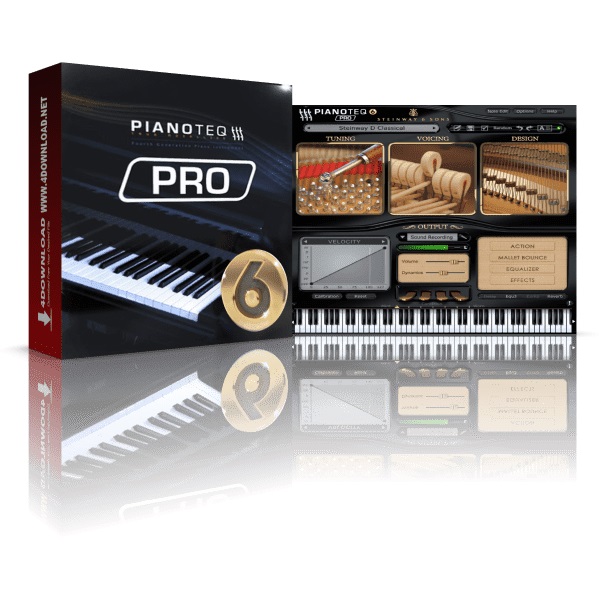

Pianoteq runs as a plug-in instrument on PC and Mac (Windows XP/2000 and Mac OS 10.3.9 and up) using any VST or Audio Units host.
Serial pianoteq software#
With the help of software developer Dr Julien Pommier and a team of musicians, Guillaume's equations were transformed into a digital piano which Modartt claim is the first of its kind. Recently, thanks to the dramatic increase in computer CPU speed, he was able to combine his two areas of expertise and write a mathematical model for an acoustic piano. Aged 30, Guillaume began to study mathematics, earned the title of doctor and became Director of Mathematics at INSA (Institut National des Sciences Appliquées) In Toulouse. While tuning and voicing pianos for concert pianists, he began to dream about the possibility of digitally controlling every individual overtone within a note, but the limitations of '80s PCs made the idea impractical. Twenty-five years ago, Guillaume pursued a career in piano tuning and restoration. This endeavour was made possible by Dr Philippe Guillaume, one of those rare Renaissance men whose brilliant ideas occasionally light up the shadowy reaches of the music industry. The company felt that the latter approach fails to take into account the complexity of the instrument, so decided the way forward was to build a digital modelled piano.

I was, therefore, sceptical when an SOS colleague emailed me to sing the praises of Pianoteq.Īccording to its makers Modartt, Pianoteq is the world's first 'fourth generation' piano, the previous three being represented by acoustic piano (starting with Cristofori's pianoforte in 1698), electro-acoustic pianos like the Fender Rhodes, and present-day sampled instruments where each note has been separately pre-recorded at different dynamic levels.

Their sustained notes and overtones don't interact like those of a real piano, and the complex enriching effect of the sustain pedal is, I believe, impossible to replicate using a fixed menu of samples. Though the recent crop are a lot more playable than their predecessors, these sample-based instruments often feel a bit lifeless. Conversely, playing a sampled piano is not exactly my favourite pastime. Acoustic piano was my first love, and though I don't own an expensive 88-note model (roll on that modest Lottery win), there's nothing I like better than cutting loose on a freshly tuned, well-maintained, fine-toned concert grand. I should say right off the bat that when it comes to pianos, I'm something of a purist. Can an 8Mb plug-in really compete with the new generation of multi-Gigabyte sampled grand pianos?


 0 kommentar(er)
0 kommentar(er)
